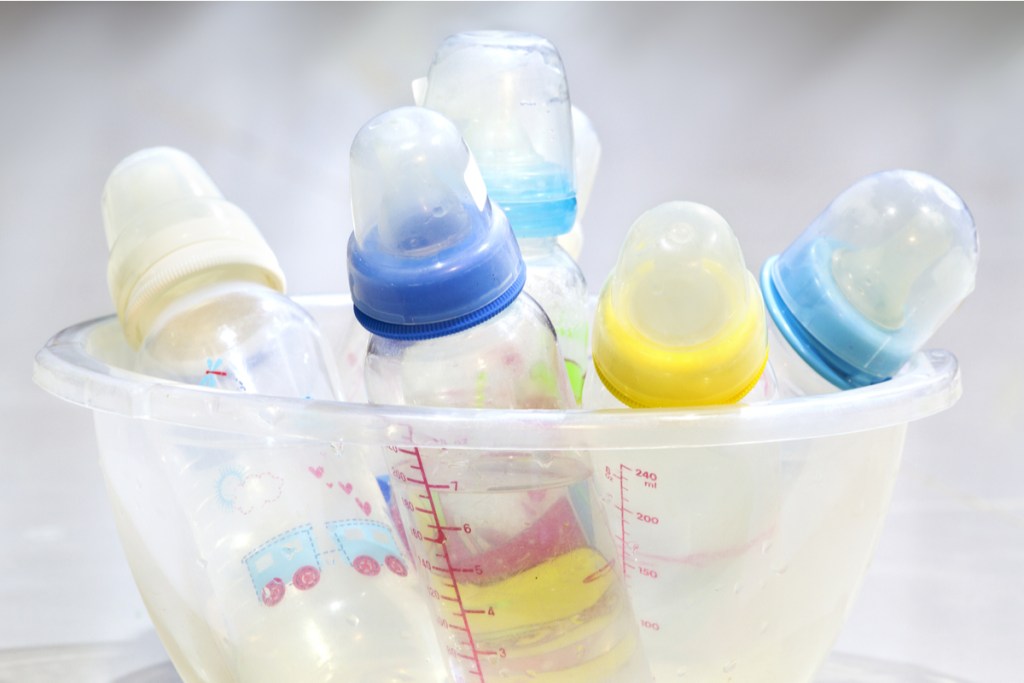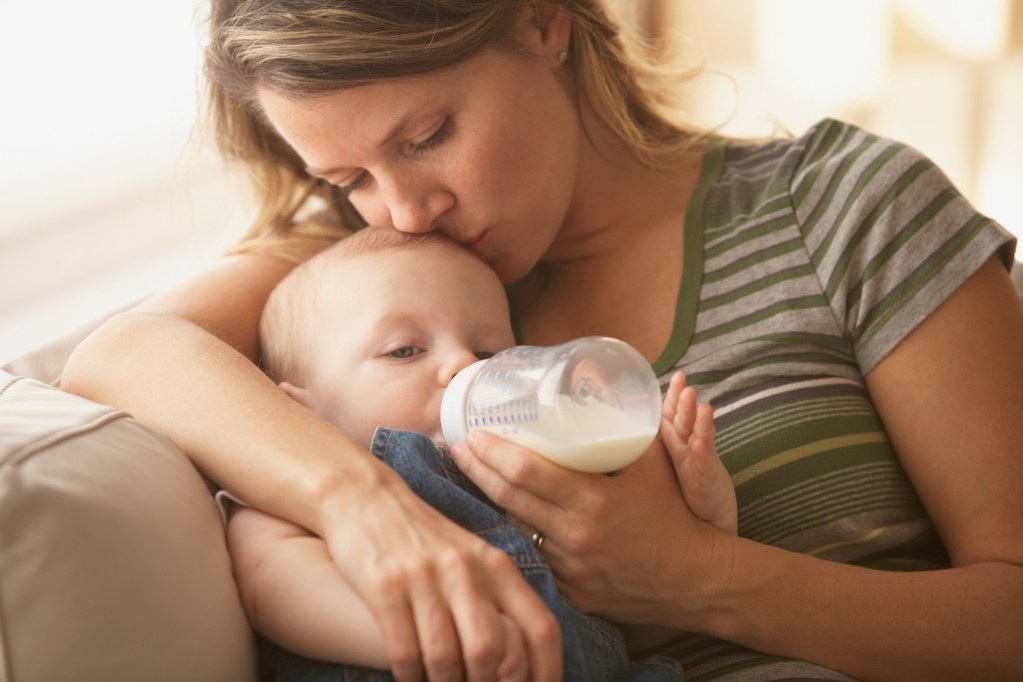
If you’ve made the decision to bottle-feed your baby, then you’re probably wondering about soy formula. Soy formula is one of the formula options available to parents. Formula is for babies up to 12 months of age and is designed to provide growing babies with the nutrients they need.
Baby formula options include milk, protein hydrolysate, specialized, and soy. The protein hydrolysate formulas are typically for babies unable to digest milk or soy-based formulas, while specialized formulas are for premature babies and infants with certain medical issues. Soy is a popular formula for babies, but many new parents may be wondering what exactly soy formula is and if it’s a good choice for their baby.
So, before you head over to the baby formula aisle of your local grocery store, let’s get the facts about soy formula.

What is soy formula?
Unlike traditional baby formula, soy formula is a plant-based option. Soy is also known as soybeans. It’s a legume and a source of protein. Soy formula is different from soy milk because it’s specifically made to provide babies with the necessary nutrients found in breast milk.
Like other baby formulas, soy formula is strictly regulated by the Food and Drug Administration to ensure they meet specific nutritional and safety requirements. Popular soy formula options include Similac Soy Isomil, Enfamil ProSobee, and Gerber Good Start Soy. Walmart also offers a Parent’s Choice soy formula for infants. Soy formula is usually available in powder and liquid forms.

Things to know about soy formula
Since more and more people are exploring plant-based food options, giving your newborn soy formula may sound like a great choice. When thinking about soy formula, here are some things parents should consider.
Why soy formula
For families who are vegan or vegetarian, soy formula is the obvious choice because it is a plant-based formula. Your doctor may also recommend soy formula if your baby has galactosemia or is unable to tolerate sugar galactose, a primary lactase deficiency where an infant can’t break down sugar lactose or is lactose intolerant. Some parents want to switch to a soy formula if their infant is having difficulty with milk-based formulas. There are schools of thought that think soy formula can help babies deal with gas, fussiness, eczema, and/or colic.
When not to choose a soy formula
There are some infants who should not be given soy formula. Infants showing signs of a milk protein allergy should not try a soy formula because they will most likely also have issues with soy-based formulas. Babies at risk for certain food allergies should avoid soy formula as well since soy is a common allergen. Premature babies are typically not given soy formula because of the possibility of decreased bone mineralization.
Concerns about soy formula
When making the decision to use soy formula, parents may also want to consider some of the concerns about the plant-based baby formula. While safe since soy formula is regulated by the FDA, like milk-based and specialized baby formula, there are some things to keep in mind.
Since soy formula has phytoestrogens, there are worries that its use may impact development, because phytoestrogens mimic estrogen. Research about the effects of phytoestrogens in infants is ongoing. Soy formulas also have more aluminum than milk-based formulas. Aluminum can impede bone development, which is why most pediatricians don’t advise giving preemies soy formula.
Deciding on soy formula
Choosing the correct formula for your baby is an important decision. It’s one that needs to be made with your pediatrician. If your family is strictly vegetarian or vegan and you plan on using formula for your infant, discuss using a plant-based one with your baby’s doctor prior to birth.
Switching baby formulas
If you’re using a milk-based formula and wish to change to a soy formula, have a conversation with your baby’s doctor. Never change to a soy formula without talking to your doctor beforehand. If your doctor agrees that a switch to soy formula is prudent, ask about how the transition should be done. The transition can be gradual or complete. Be sure to discuss which is the best option for your little one.
Watch for possible reactions
Whenever babies are given something new, it’s important to keep an eye out for possible reactions. Any reaction may indicate your baby is allergic to soy. Potential reactions when changing to a soy formula may include a rash, digestive issues, spitting up, vomiting, or a difference in baby’s poop. It’s important to make your doctor aware of any changes your baby experiences when switching to a soy formula.

Going with soy formula
Soy formula is an option for parents looking for an alternative to breast milk or milk-based baby formulas. For vegetarian or vegan families, soy formula is a top choice since it’s a plant-based option. When considering switching your child from a milk-based baby formula to soy, remember babies displaying symptoms of a possible milk allergy may also have an allergic reaction to soy.
So, with the facts you have about soy formula, talk it over with your pediatrician before going with or changing your baby to a soy formula. Your physician can help you make the transition and monitor any possible reactions if soy formula is a good choice for baby.



